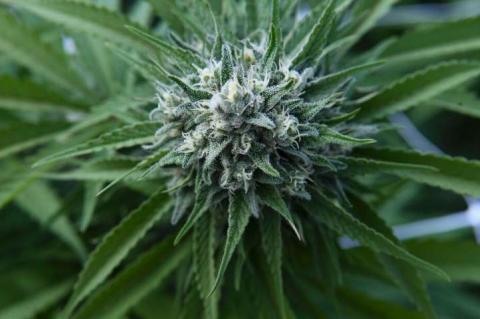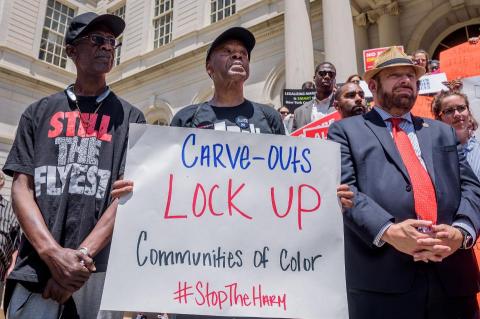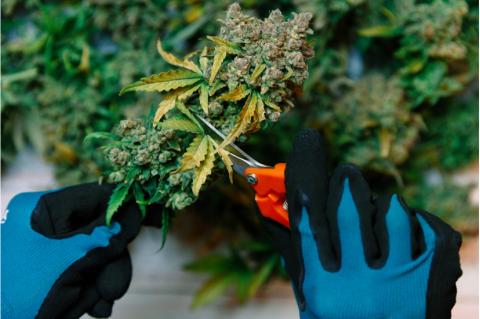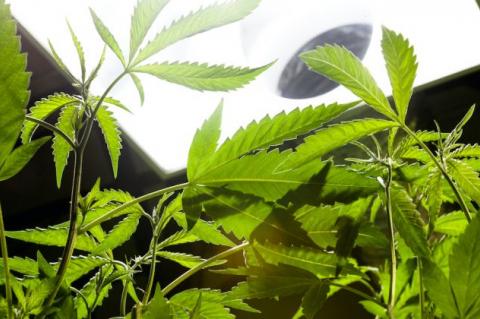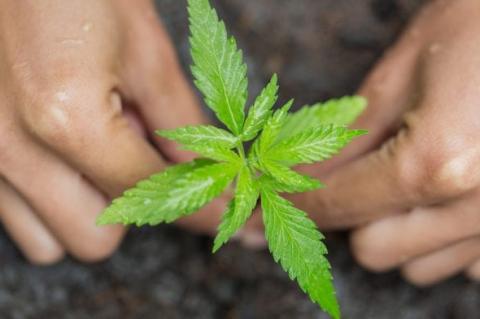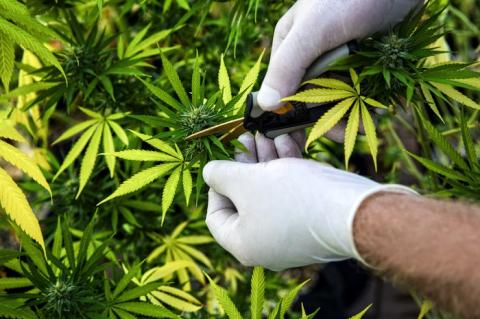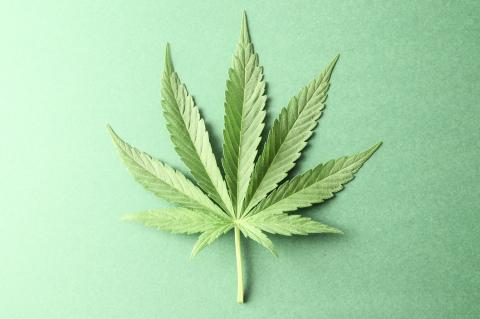Today, the U.S. Senate hosted a hearing titled “Marijuana and America’s Health: Questions and Issues for Policy Makers.”The hearing featured an array of expert witnesses and included input from the U.S. Surgeon General himself. Much of the conversation focused on repeating the dangers of cannabis consumption — particularly the “extra potent” forms of THC lawmakers fixated on — though there were a few moments of clarity around concrete policy steps forward.
The hearing was hosted by the Senate’s Caucus on International Narcotics Control, which is co-chaired by Senator John Cornyn of Texas and California Senator Diane Feinstein. Both Cornyn and Feinstein have expressed anti-cannabis perspectives on the past, with Feinstein in particular working to block pro-cannabis legislation for decades. Earlier this year, however, she did take the small step of introducing a bill to encourage medical research on cannabis and CBD.
Cornyn started the hearing saying he and Feinstein have been looking to have a forum on the public health consequences of marijuana legalization, saying he believed the U.S. lacks the short- and long-term science on a variety of marijuana topics.
“What type of evidence is conclusive enough to make a policy recommendation on?” he asked.
“It’s critical for people like Senator Feinstein and I to understand these things.”
Feinstein agreed with her Republican counterpart and noted “the point of today is to better understand marijuana’s impact on public health.” She added: “I’m told much of what we know is anecdotal.”
Feinstein said it is her belief that science should inform policy, and that’s why she introduced legislation to help remove some of the roadblocks to research. “It’s important we learn more about appropriate dosing and delivery mechanisms,” she said.
Federal Medical Officials Warn About Cannabis Dangers & Push for Research
Dr. Jerome Adams, Surgeon General of the United States, kicked off the testimony on what he called a complex issue that demands our attention and our action.
“I’ve spoken with health department officials across the country, my friends, many of them reluctant overseers of an enormous and poorly informed public health experiment,” Adams told lawmakers. “Over and over, I hear rapid escalating concern about the normalization of marijuana use, and the impact of a false perception of its safety is having on our communities, and specifically our young people and our moms-to-be.”
Adams was followed by Dr. Nora Volkow, the director of the National Institute on Drug Abuse. She talked about standard issues like cognitive performance and the impact of marijuana on the developing mind. Then her testimony skewed a little darker, as Volkow noted serious mental illnesses and suicides in this country are on the rise. “And while multiple factors are likely contributing to this rise, it is imperative to understand if exposure to high-potency cannabis during adolescence is one of them,” she said. “High-potency marijuana can trigger acute psychotic episodes, which is one of the main causes for emergency department visits associated with cannabis use. Which are also rising.”
Throughout the testimony, both Volkow and Adams compared cannabis to tobacco and alcohol, relevant comparisons for the fact that while both substances have negative health consequences, both are federally legal. (Neither Volkow nor Adams ever intimated that they supported federal cannabis legalization.)
At one point, Cornyn asked the panel if the current cannabis landscape reminded them of what Americans learned about Big Tobacco before.
“Sir, we’ve seen this play before,” Adams replied. “Cocaine was thought to be an effective medicine and harmless. Once upon a time, opioids were thought to be good for whatever ails you, and to not have any negative effects or a higher dosage limit. Not that I am in any way, shape, or form comparing marijuana to those substances, but from a policy point of view, I think the lesson we should have learned is that we have to make sure the science is leading the policy and that the tail isn’t wagging the dog.”
Adams said many of the things people are using marijuana for are unproven and overstated, “and in my opinion we are downplaying risk.”
In late August, Adams put out a Surgeon General’s advisory about the consequences of marijuana use on the developing brain.
Cornyn later asked Adams to go further, and to state if cannabis use would be damaging to a developed adult brain and if he would advise adult-use cannabis.
“As the Surgeon General of the United States, the first thing I would way is absolutely not,” Adams replied. “There are plenty of substances out there which adults can partake of that are not only not harm free, but my office had a long history of trying to reign the horse back in on. You mention tobacco, alcohol is one of the top killers in our country… I think, again, we need to be careful about the normalization of behavior.”
Adams said of the other dangers of marijuana usage is that “we don’t know what we don’t know.”
Both Adams and Volkow mentioned that the Schedule I status of cannabis inhibits productive federal research on the substance.
Of course, the vaping health scare also earned some air time. Feinstein asked about the safety of vaping, citing the 33 deaths reported by health officials. The Surgeon General replied he was very concerned and spoke of collaborative efforts with the Center for Disease Control and Department of Health and Human Services.
“A large number of these cases have been associated with vaping THC, particularly THC that has been obtained on the black market,” Adams said, before being cut off by Feinstein, who wanted him to explain what happens inside the lungs after a tainted vape is consumed.
Doctors Provide Some Nuance in Second Senate Panel
In the second panel of the day before the same Senate caucus, Dr. Robert Fitzgerald, a professor of pathology at the University of California-San Diego, testified about the data around the impact legal cannabis has had on traffic accidents and related fatalities.
Dr. Staci Gruber, an associate professor of psychiatry at Harvard Medical School, also testified, and quickly made a much-needed distinction that the conversation of the day had been lacking: most research focuses on high-THC recreational consumption, rather than what consumption looks like for medical cannabis patients. Gruber explained that, despite the country being in the middle of a “green rush,” it’s tough for people to navigate facts.
“Nearly all of what we know about marijuana comes from studies of recreational marijuana users,” Gruber said. “These studies typically focus on those with chronic heavy marijuana use. Data across studies is inconsistent but generally reflects on those who use marijuana and those who don’t spanning a number of areas that we’ve heard allusions to already including cognitive performance.”
Gruber argued later that CBD might have the potential to counteract some of the negative effects THC might have on your brain, “but it’s virtually undetectable in recreational products.”
Gruber went back to making sure the conversation separates medical users from recreational. She said in some cases medical patients showed improved cognitive performance.
“The Schedule I status of marijuana leads to a number of obstacles in conducting research,” she said. “Policy at this point has clearly outpaced science, and as the nation has warmed to the use of both medical and recreational marijuana, the need for empirically found data is critical in order to maximize benefit and reduce harm.”
Her testimony was followed by Dr. Sean Hennessy, a professor of epidemiology at the University of Pennsylvania’s Perelman School of Medicine. He was a member of the 16-person committee that wrote the 2017 National Academy of Science report on the then-existing literature about the potential health effects of cannabis-derived products, both therapeutic and harmful.
As Hennessey testified, the report recommended public health agencies fund a cannabis research agenda, federal agencies convene to create benchmarks for high-quality research and fund improvements to the public health surveillance system, and federal agencies should find regulatory barriers and think of strategies to create the infrastructure needed to conduct cannabis research.
Dr. Madeline Meier, an assistant professor of psychology at Arizona State University, finished the panel by speaking on her research into marijuana’s effects on cognitive performance in 2012.

